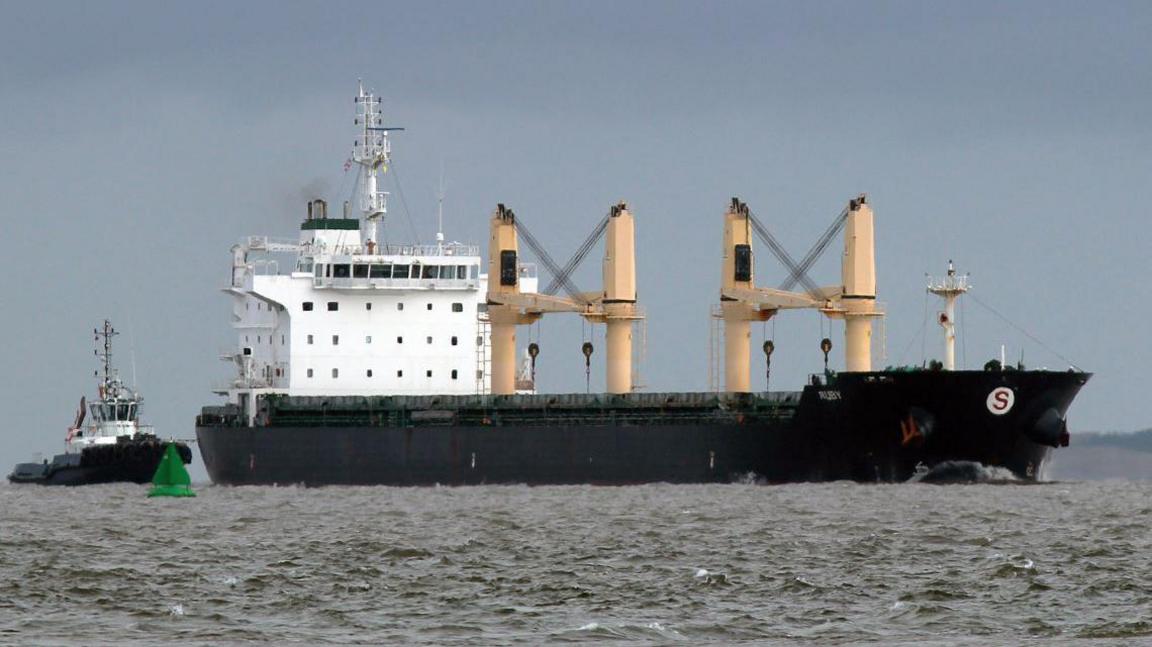300 tonnes of 'explosive' cargo dumped in North Sea
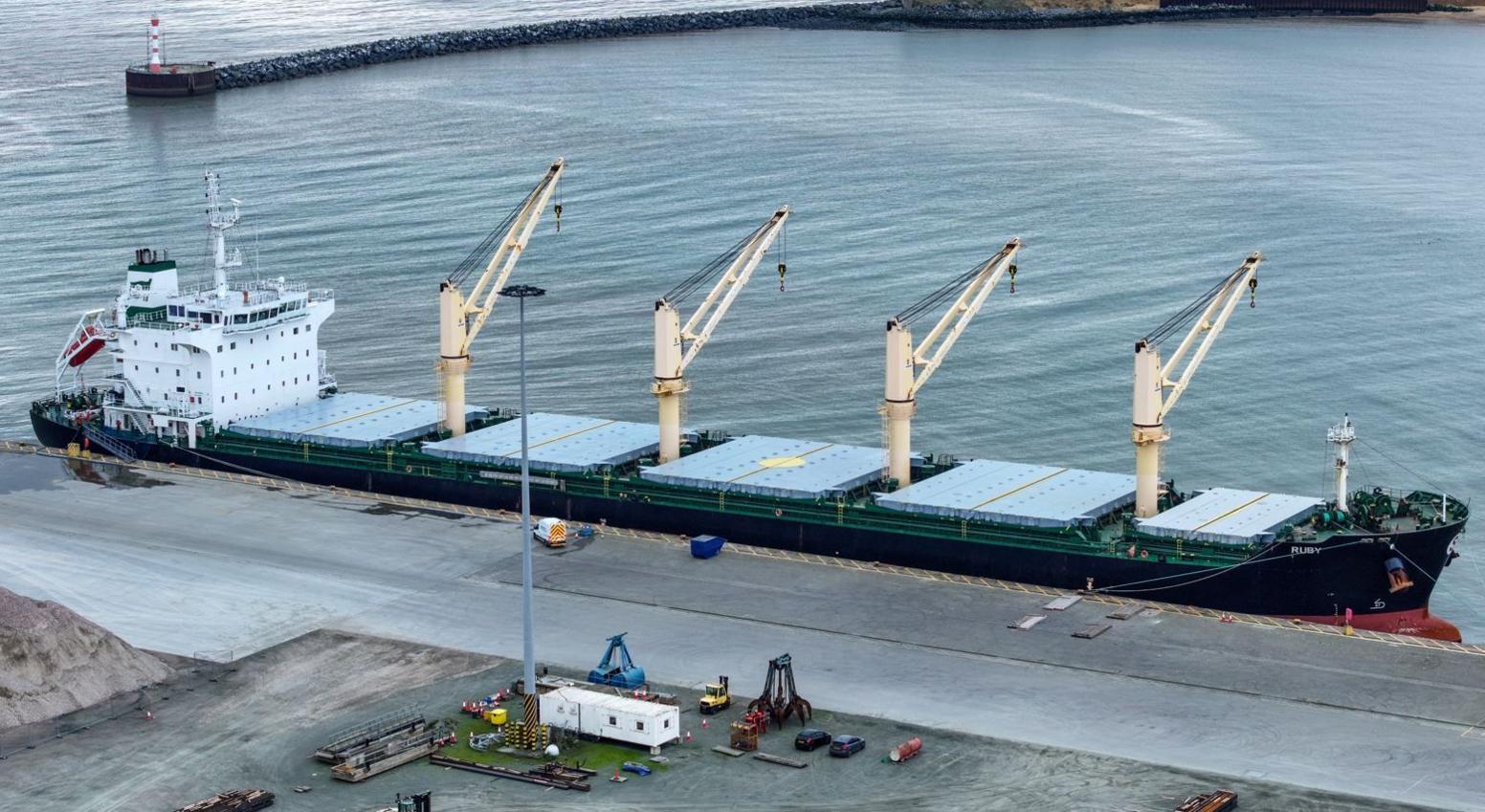
The MV Ruby returned to the Port of Yarmouth after dumping part of its cargo on Saturday
- Published
A ship has dumped about 300 tonnes of potentially explosive cargo into the North Sea, the BBC has learned.
The MV Ruby carried out the operation off the coast of Great Yarmouth in Norfolk, over fears the ammonium nitrate fertiliser had been contaminated with fuel oil.
The dumping has prompted an outcry from environmentalists and local businesses.
The Maritime and Coastguard Agency (MCA) said "hydrocarbons and seawater" had been found on bags holding the material.
The agency said the bags were likely to have been affected when the ship ran aground and its hull damaged several weeks ago.
It added the material was discharged into UK territorial waters at a location "that offered the lowest environmental impacts".
The affected load was situated in the front-most of the ship's four holds, a spokesman said.
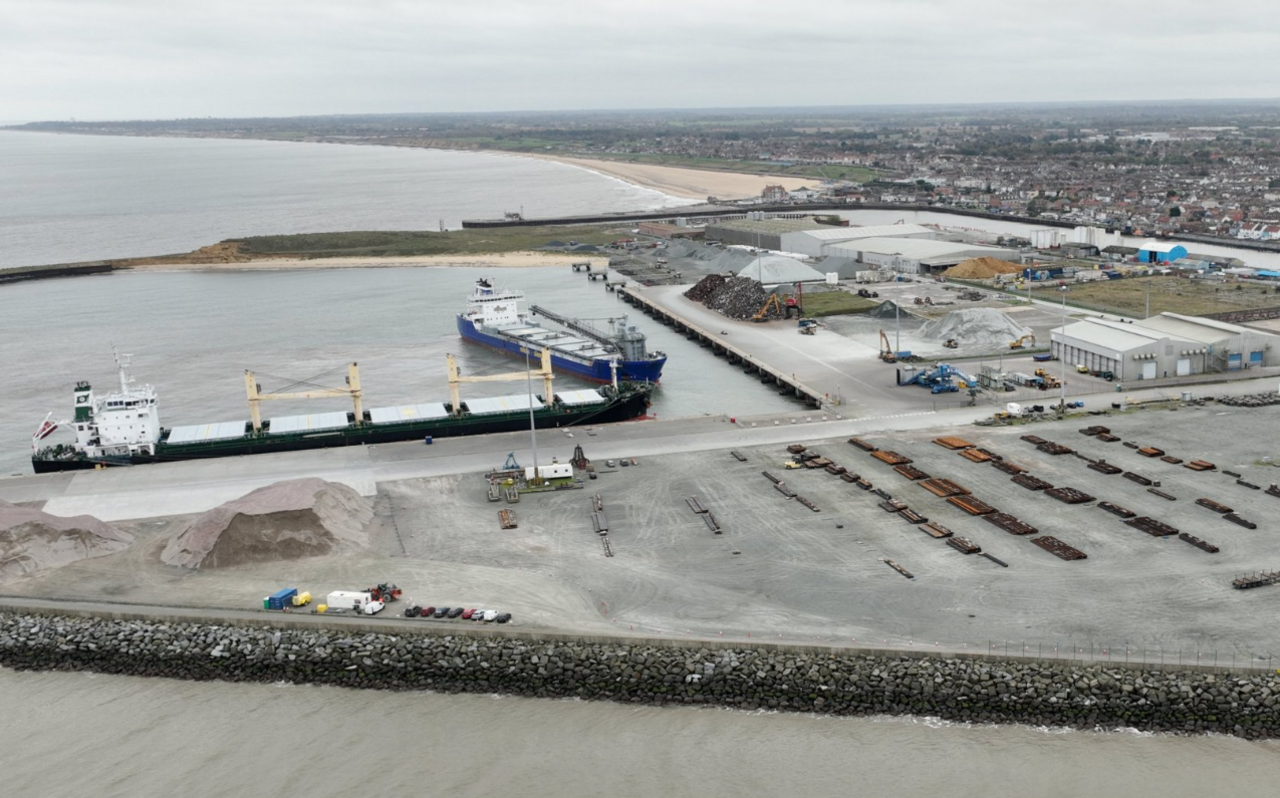
The MV Ruby is currently transferring the rest of its cargo to another ship at the docks in Great Yarmouth
When ammonium nitrate and fuel oil is mixed it is commonly used as an explosive, according to the Health and Safety Executive (HSE)., external
The ship left Kandalaksha in northern Russia in July.
'Safely discharged'
The Malta-registered ship had already been turned away from the territorial waters of a number of countries in Europe.
It was previously anchored about 11 miles (17km) off the coast of Margate in Kent awaiting repairs to its hull and propeller, which were damaged in bad weather.
It is currently transferring the rest of its cargo to another ship at the docks in Great Yarmouth after the dumping operation on Saturday.
Its return to the port resulted in a backlash from local council leaders but the government said the correct procedures had been followed.
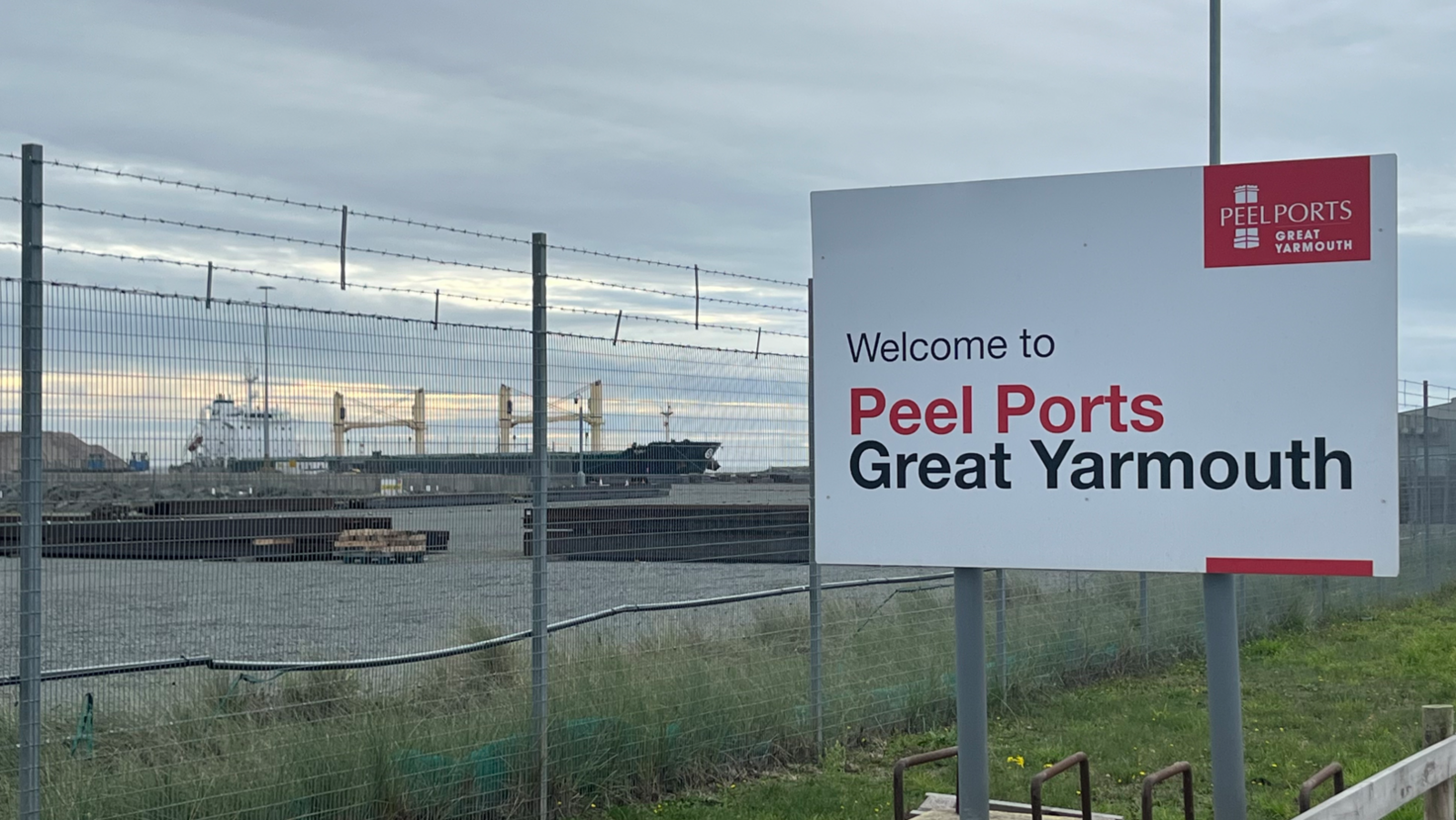
The Malta-registered MV Ruby is anchored at Great Yarmouth
When asked by the BBC if the potentially contaminated fertiliser posed an additional risk of explosion or fire, the HSE said it did.
"Contamination of ammonium nitrate is generally expected to increase the likelihood of an explosion if that ammonium nitrate is subject to a severe fire and/or an intense shock" it said.
The Department for Transport (DfT) said the cargo was safely discharged into the sea - a decision made by the ship's master on the grounds of safety.
A spokesman added: "The port and ship operator have carried out an operation, with advice from the Maritime and Coastguard Agency, the Health & Safety Executive and environmental regulators.
"All are content that the MV Ruby and its cargo meet safety standards."
'Herring season'
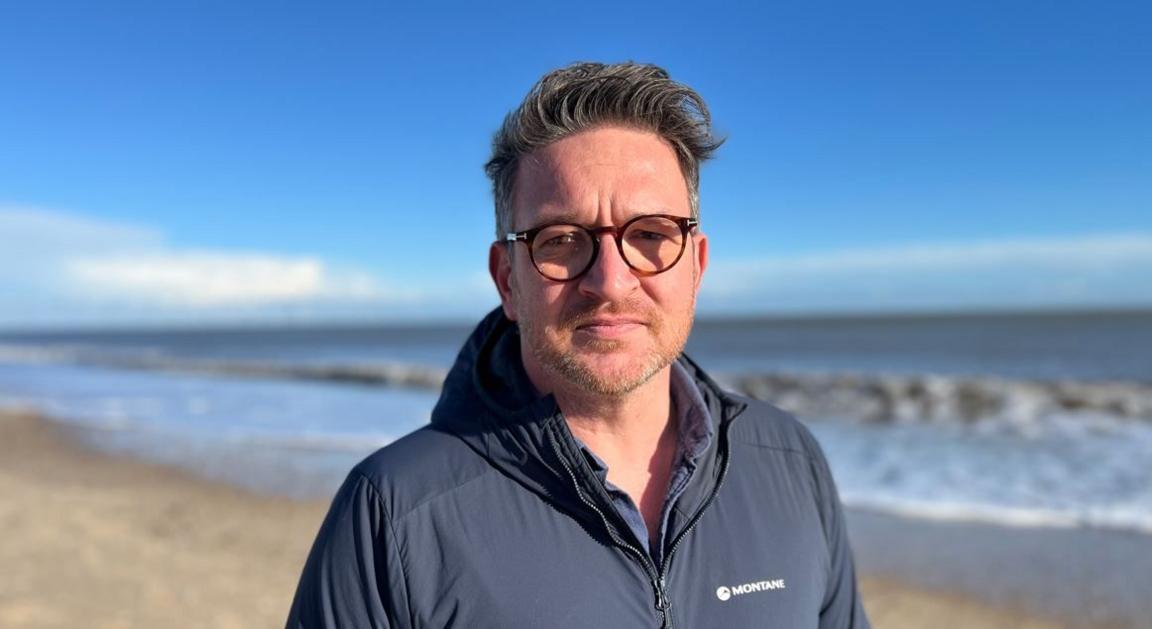
Professor Ben Garrod said the environmental impact of the dumping would be 'devastating'
Ben Garrod, Professor of Evolutionary Biology at the University of East Anglia, said the dumping would have a "devastating impact on local maritime species".
"I see this a massive loss to our local community because we're dumping pollution into our local environment," he said.
The Maritime and Coastguard Agency said the material would dissipate but Professor Garrod added: "Yes, everything dissipates eventually but that's not without massive detriment to our local environment."

Local fisherman and restaurateur Paul Williams: "This really shouldn't be happening"
Paul Williams, a Great Yarmouth-based fisherman and restaurant owner, said this had happened "at the worst of times".
"We are right in the middle of the herring season when all the herring come down here to spawn," he said, adding that other marine life also feed off the fish.
He dismissed the government's assurances that the material had been safely discharged.
"It's all part of the ecosystem," he said.
"This really shouldn't be happening. It's awful."
The ship's Dubai-based management company has been approached for comment.
The Maritime and Coastguard Agency has said previously that a "small quantity of contaminated cargo was found on the MV Ruby", but that it had been successfully removed.
The agency added: "A decision was reached between the ship owner and port operator to allow the vessel to return to Great Yarmouth port to continue transferring its remaining safe cargo."
Get in touch
Do you have a story suggestion for Norfolk?
Follow Norfolk news on BBC Sounds, Facebook, external, Instagram, external and X, external.
- Published26 September 2024
